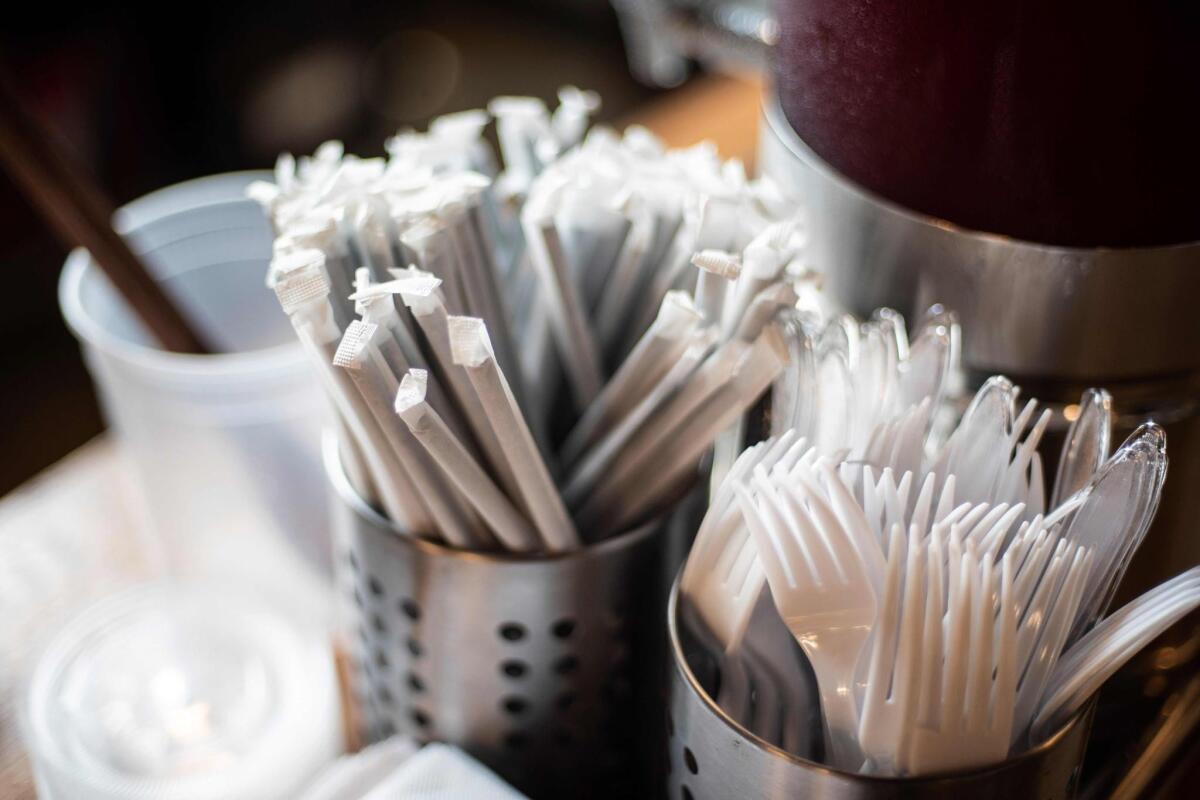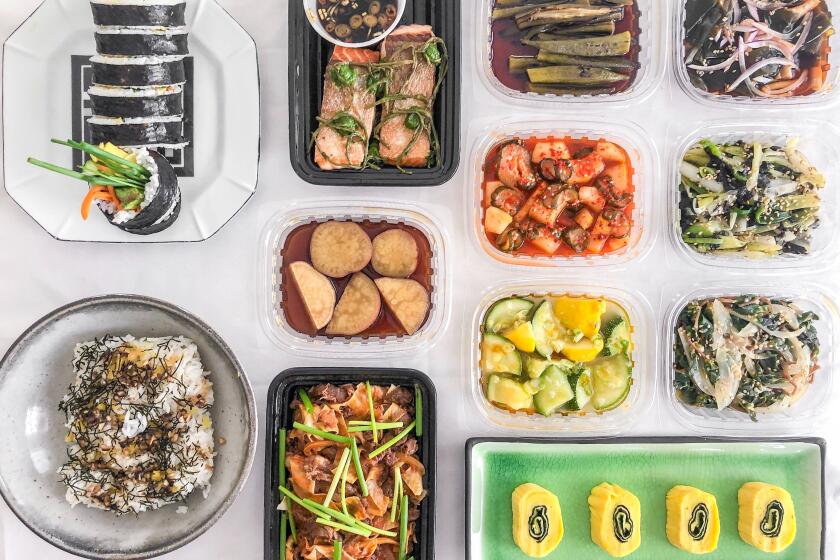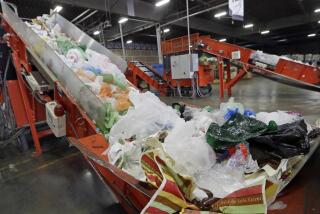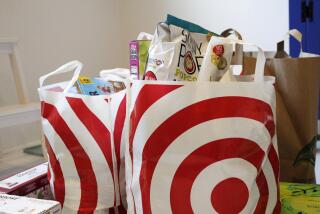Getting takeout? You have to ask for plastic utensils and napkins in L.A. now

A line of takeout orders sat near the kitchen Monday afternoon at Langer’s Deli. Customers and food delivery drivers streamed in and out an hour before closing, grabbing bags in a rush.
Some may not have realized that their takeout sacks no longer included plastic utensils or paper napkins.
For the record:
5:23 p.m. Nov. 15, 2021An earlier version of this article incorrectly listed the surname for Sheila Morovati of Habits of Waste.
Restaurants in Los Angeles are now restricted from freely distributing the disposable items and may offer them only to customers who ask for them.
Under the ordinance, which took effect Monday for restaurants with more than 26 employees, all single-use disposable food-ware dispensers will be removed. Businesses also will stop including plastic utensils and napkins with takeout orders or for dine-in meals unless a customer specifically asks for them. All food and drink businesses will be required to follow the new rules starting April 22.
More than 32,000 mailers were sent out earlier this year to update restaurants about the change. The letters were printed in Chinese, Korean, Spanish, Tagalog and English, said Tom Waldman, a spokesperson for Paul Krekorian, one of the City Council members who proposed the ordinance.
The goal is to reduce waste and costs for businesses, officials say. Councilman Paul Koretz, who joined Krekorian in the proposal, said the switch to providing plastic utensils only on demand has saved businesses from $3,000 to $21,000 a year, according to figures his office cited when the ordinance was introduced to the City Council in April.
But deli owner Norm Langer scoffed at that idea.
“The new rules will cost more money than it saves,” he said Monday from his eponymous restaurant on Alvarado Street in downtown Los Angeles. “It’s not worth the amount of money to save on plastic utensils than it is to have an unhappy customer.”
Although the ordinance went into effect Monday, enforcement will not start until January.
Langer said he’s not against the local law and pointed to numerous signs announcing other requirements at Los Angeles eateries, including those that mandate mask-wearing and proof of COVID-19 vaccinations to enter his restaurant.
“At first, we had to turn away 20 to 30 customers because they couldn’t provide proof of vaccination,” Langer said. “But whatever I need to make it safe for my employees, that’s an effort I’m willing to take.”
Utensils, chopsticks and condiments left over from food delivery can go to good use. The city is collecting them through the month of October to use at a downtown food kitchen and pantry.
The banning of single-use plastic items is not new. The city of Malibu set the plastic-ban standard in 2008 when it phased out plastic shopping bags, then a decade later cracked down on single-use plastics. Davis and San Luis Obispo have similar laws, while the state of California has phased out the use of plastic straws to curb plastic waste buildup.
Seattle was the first major U.S. city to ban plastic utensils and straws in 2018. Earlier this year, Honolulu banned plastic bags and made single-use plastic utensils available only on demand.
Sheila Morovati from Habits of Waste, a nonprofit that spearheaded the Malibu plastic straw and single-use utensil ban, also helped coordinate the Los Angeles ordinance.
“I call this a triple win,” Morovati said when reached by phone Monday. “It’s a win for the planet, a win for the customers who don’t have to have their junk drawers filled with all this plastic and a win for the restaurants and their bottom line.”
Habits of Waste previously spearheaded the #CutOutCutlery campaign, which resulted in several major food delivery apps adding the option for customers to opt out of receiving single-use cutlery.
Langer thinks the ordinance is full of good intentions, but he can already foresee some upset customers who reach into their bag for napkins after eating a pastrami sandwich or looking for a fork when they want to dig into their potato salad.
“People just forget to ask for a fork and spoon. It’s human nature,” Langer said. “My customers are not going to be familiar with every new ordinance, and that could leave some of them pretty inconvenienced.”
But Yair Ziv, 19, seemed unbothered when he heard what would be missing from his order. The Brooklyn, N.Y., visitor had asked the staff at the famous L.A. deli for their recommendation and didn’t bother to check whether he’d need any utensils for his meal.
“Does it matter if I don’t need any?” Ziv asked out loud. “I think that’s a good rule in a way. A lot of times I don’t want utensils. Sometimes it might be worth it.”
More to Read
Sign up for Essential California
The most important California stories and recommendations in your inbox every morning.
You may occasionally receive promotional content from the Los Angeles Times.












